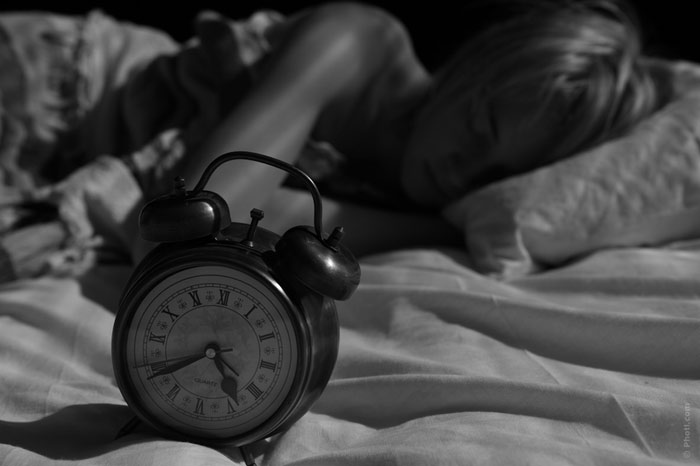Getting a good night’s sleep is one of the most important things you can do for your health. If you’ve been tossing and turning, here’s how to settle down and get the sleep you deserve.

Make Sure You Have The Right Bed
There’s a lot of debate about what constitutes a good bed. Some people like sleeping on soft beds like the adjustable air beds from Night Air Beds. Others like sleeping on hard beds. Some people like sleeping on the floor.
The important thing is to get a bed you are comfortable with. If you can’t get comfortable, you’re not going to sleep. Period.
If you don’t like your bed, don’t minimize it or rationalize. Get yourself a new bed, pronto.
Establish a Sleep Schedule
Your sleep schedule should be consistent. Set a time that you will go to bed and stick with it. Don’t change this time or make exception to this rule unless and until you establish it as routine. Usually this will take several months, but it might take a year or more.
Most people benefit from going to bed at 10 or 11PM, but shoot for a 10PM bedtime, or earlier, depending on when you need to get up for work. Your ideal sleep schedule will give you 8 to 9 hours of quality sleep, without interruption. That means, without noise or other distractions.
If you have noisy neighbors, this presents a special problem. It might be worth it to try and make peace with them so that you can sleep. If they’re weekend partiers, you have an even bigger chore. Your options are limited. You could save up some money and soundproof your room. If you rent, consider moving to a quieter neighborhood. It’s important. Without distraction-free sleep, things will not change. You will not be able to get quality sleep.
If moving is impossible for you right now, consider earplugs or noise-canceling devices so that you can get some snooze time.
Stop Using Electronics Before Bed
There is some research that suggests that blue light disrupts your body’s ability to release melatonin. Any kind of artificial light can contain the blue (short wave) wavelength, which can make it more difficult to kick into sleep mode.
If you are a late-night T.V. watcher, quitting cold turkey is usually undesirable and probably not realistic. Buy some amber-tinted glasses when you watch T.V. These “blue blocker” glasses filter out blue light, which has the strongest effect on suppressing the release of melatonin.
But, it’s not just blue light. Being exposed to normal levels of light in a room can have similar effects of suppressing melatonin. Brightness, and intensity, along with duration, are what determines melatonin levels at night.
So, if you’re in a brightly-lit room, you will have a harder time getting to sleep (if you’re already having sleep problems) than if you were to sit in a low-light room.
And, duration matters – 2 hours in a room with 500 lux intensity is equal to one hour at 1000 lux.
Don’t Eat Before Bed
Your body’s digestive process requires energy. And, by eating at night, you might disrupt your body’s ability to settle down into a sleep state. It’s true that “rest and digest” is the opposite of “fight or flight” modes, but these are not the only two options in regards to states in the human body.
When you eat later in the day, your body has a harder time digesting food, and this is especially true if you lay down on your side or back after a large meal.
Your body is normally fully awake by noon, and many people believe that your body’s digestive processes peak between 12noon and 3PM, so eating your biggest meals during these hours is probably the best idea. A small dinner is fine, and a small snack could even help you settle down into bed (warm milk anyone?), but a large meal right before bed is probably a bad idea for most people.
Make Sure You Get Enough Activity Before Bed
Getting enough activity during the day, raises a hormone in your body which triggers other hormones responsible for rest, relaxation, and sleep, at night. So, getting daily activity is crucially important. It doesn’t have to be a full-on 15K, but you should aim to get daily activity that totals at least an hour a day.
If you can get more, great. Most people benefit from having several hours of daily activity, but most people’s schedules don’t allow for that.
Unless you work in a job that’s inherently active, it’s unlikely that you will get the amount of physical activity that would be considered optimal. But, that’s OK. As long as you’re getting some activity, you’re going to benefit.
Mandy Ezard actively promotes wellness techniques as part of her work in healthcare and likes to share her insights online. Her thoughts can be found across a variety of different websites.











